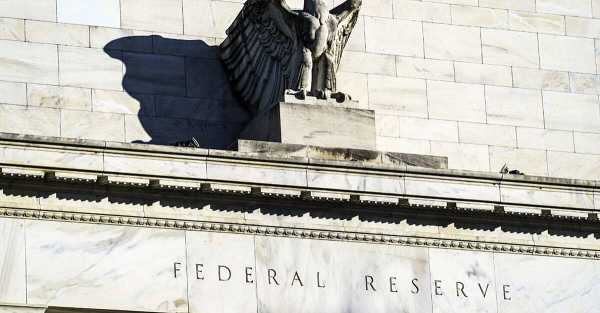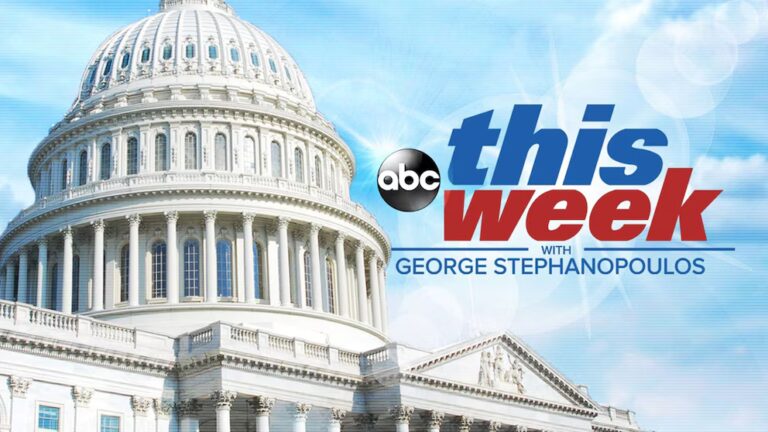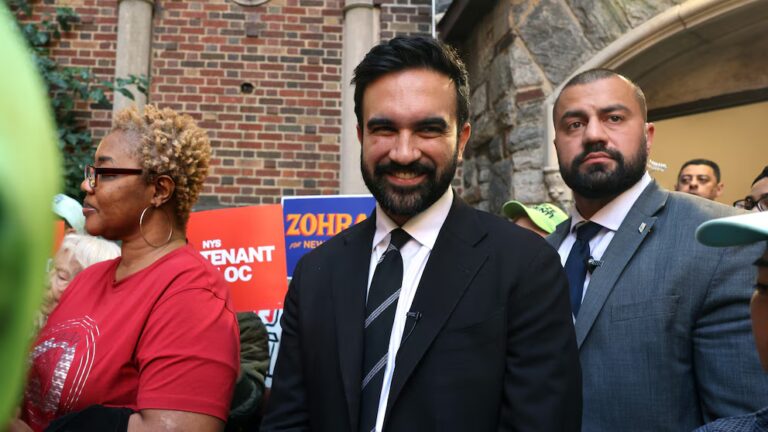
A sharp rise in consumer inflation expectations to levels not seen since the early 1980s, coupled with market volatility and a rise in U.S. Treasury yields on Friday, made it more difficult for the Federal Reserve to determine whether the economy is headed for another price shock or a recession.
As households, businesses and global investors quickly adjust to the effects of President Donald Trump's aggressive import tariffs, Fed officials said it was becoming increasingly difficult to predict future trends, looking at recent market developments and a growing sense of unease in consumer sentiment about upcoming inflation.
“It’s hard to say with any certainty how the economy will develop,” New York Federal Reserve President John Williams said in a speech to the Puerto Rico Chamber of Commerce that included projections of growth falling to less than 1 percent this year, inflation accelerating to 4 percent and unemployment rising to 5 percent — unfavorable outcomes for a central bank seeking to maintain low inflation and high employment, which could significantly affect the purchasing power of U.S. households.
“Given the uncertainty about the impact of recently imposed tariffs and other policy changes, there is an unusually wide range of possible outcomes,” Williams added.
In a worst-case scenario, a sharp rise in short-term inflation expectations among consumers could begin to weigh on longer-term forecasts and spill over into market indicators that Fed policymakers have seen as consistent with the central bank's 2 percent inflation target.
Fed policymakers are focusing on keeping longer-term inflation expectations in check, but are also monitoring a steady rise in expectations for the year ahead, which soared to 6.7% after Trump announced retaliatory tariffs on April 2, according to new data from the University of Michigan.
Rising inflation expectations could threaten the Fed's gains in tackling rising prices amid the pandemic and undermine the central bank's ability to support an economy facing new risks at a time when markets are struggling to find stability.
“The Fed or the Treasury Department should intervene cautiously and only when absolutely necessary,” said Minneapolis Federal Reserve Bank President Neel Kashkari, who, while at the Treasury, ran the Troubled Asset Relief Program during the 2007-09 financial crisis.
“I think we should be very careful about taking steps that might signal a weakening of the Fed's commitment to reducing inflation (which I don't think is the case),” Kashkari told CNBC.
New data from the University of Michigan confirmed a four-month rise in inflation expectations among consumers for the coming year and a decline in consumer sentiment that cut across partisan lines.
It was the combination of high inflation and high unemployment that led former Federal Reserve Chairman Paul Volcker to prioritize controlling inflation with tight interest rates in the late 1970s and early 1980s, leading to a recession.
St. Louis Federal Reserve President Alberto Musalem said Friday's University of Michigan consumer survey, which showed consumers' long-term inflation expectations at their highest level in 30 years, was a “notable” exception to other data that he said showed long-term inflation expectations were still stagnant.
“If we start expecting inflation to remain high in the long term, the task of restoring price stability and maximum employment becomes much more difficult,” Musalem added.
The implications for monetary policy – at least keeping interest rates where they are even if the economy is widely expected to slow – highlight the crossroads the Fed may be approaching amid speculation about market intervention or even emergency rate cuts to restore battered confidence.
Kashkari, in his most candid comments yet on a possible emergency response to the volatility that has gripped markets in response to Trump's tariff barrage, said it would take a clear emergency in the financial system for the central bank to intervene.
“If
Sourse: breakingnews.ie






